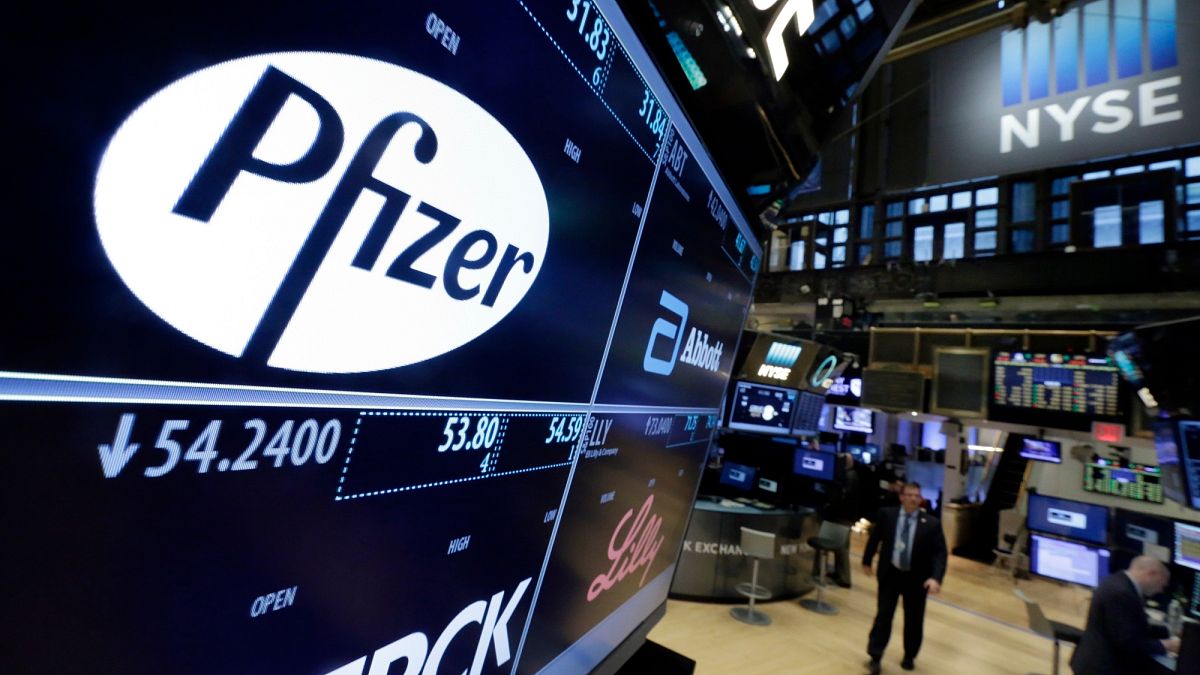Published on
Pharmaceutical giant Pfizer reported better-than-expected quarterly results on Tuesday and improved its predictions for full-year profits, beating Wall Street expectations.
The New York-based company reported second-quarter sales of $14.7 billion (€12.74bn) and earnings per share of $0.51 (€0.44).
As of around 16.00 CEST, Pfizer shares were up over 4% at $24.58.
“Our business is performing well and I’m pleased with the progress we achieved in the second quarter,” chairman and CEO Albert Bourla said in a statement.
“We continue to be actively engaged with policymakers as we navigate a complicated and rapidly evolving geopolitical environment while also remaining focused on advancing our business,” Bourla continued.
This despite several policies announced by the current US administration that could hurt drugmakers.
In May, US President Donald Trump signed an executive order whereby pharmaceutical companies would be compelled to lower prices based on a “Most Favored Nation” policy.
The price-slashing scheme seeks to ban drug companies from selling products in the US at prices above those in other developed countries. In Europe, the comparison becomes complex, as a significant portion pharmaceutical costs are covered by national healthcare or insurance systems, lowering prices for consumers.
Experts warned at the time that this could slash their US revenues and affect availability. Even so, the president doubled down on his plans, sending letters last week to 17 drugmakers, calling for concrete steps to cut prices by 29 September. That includes agreeing to provide their full portfolio of existing medicines at no higher than European prices to every single Medicaid patient.
On Tuesday, in an interview with CNBC, he announced that tariffs for pharmaceuticals and semiconductors would be coming in “next week”.
“We’ll be putting an initially small tariff on pharmaceuticals, but in one year, one-and-a-half years, maximum, it’s going to go to 150% and then it’s going to go to 250% because we want pharmaceuticals made in our country,” he told CNBC.

